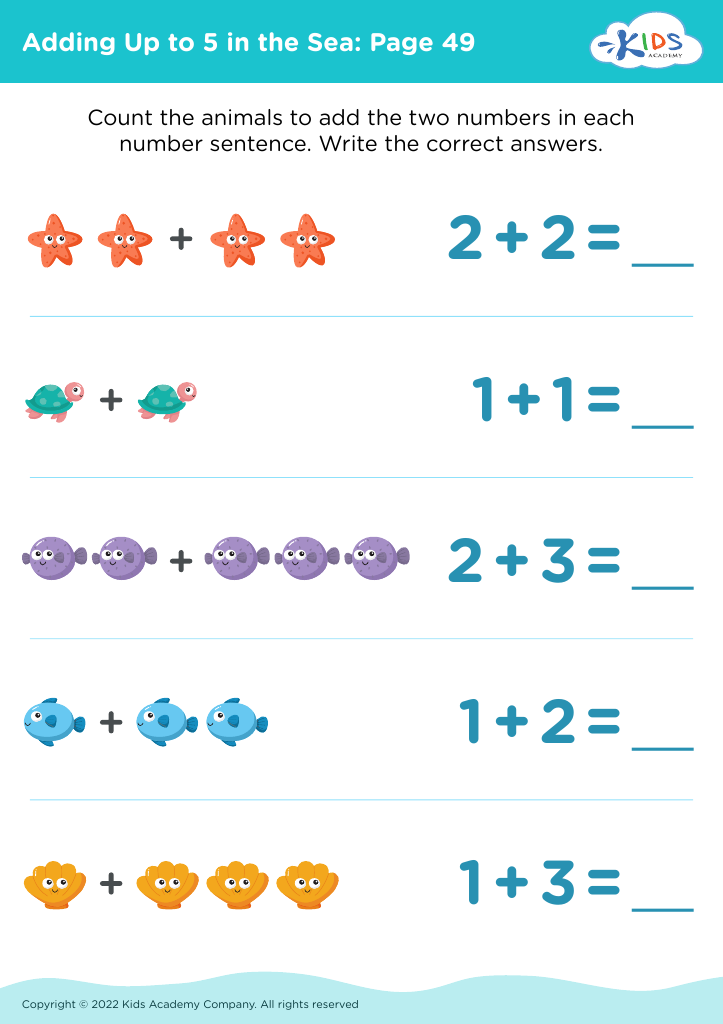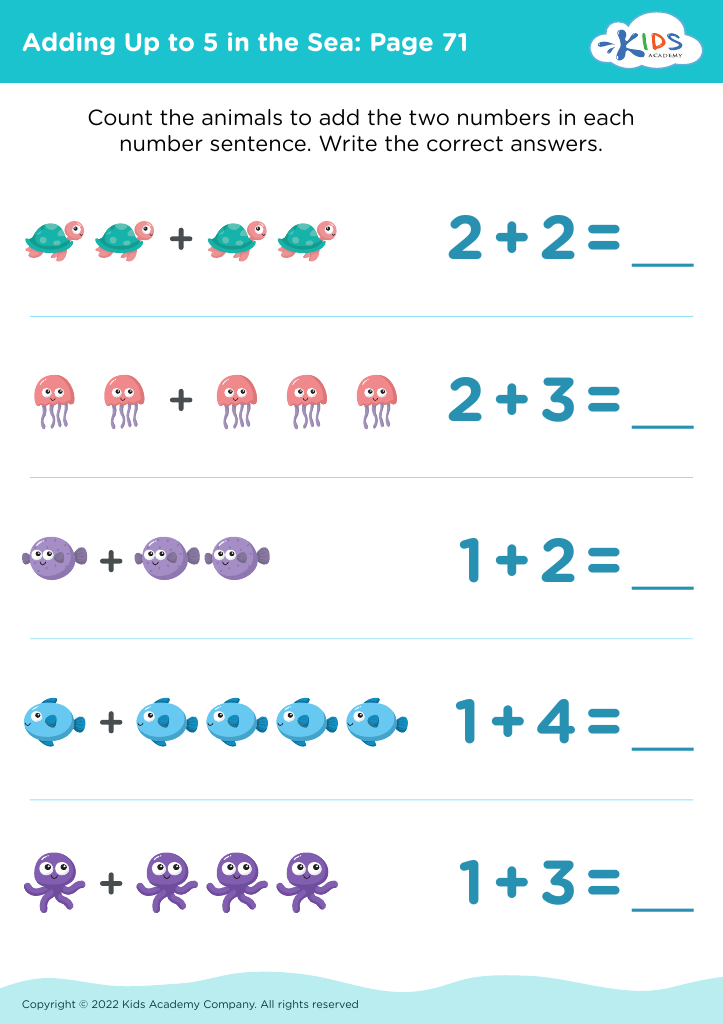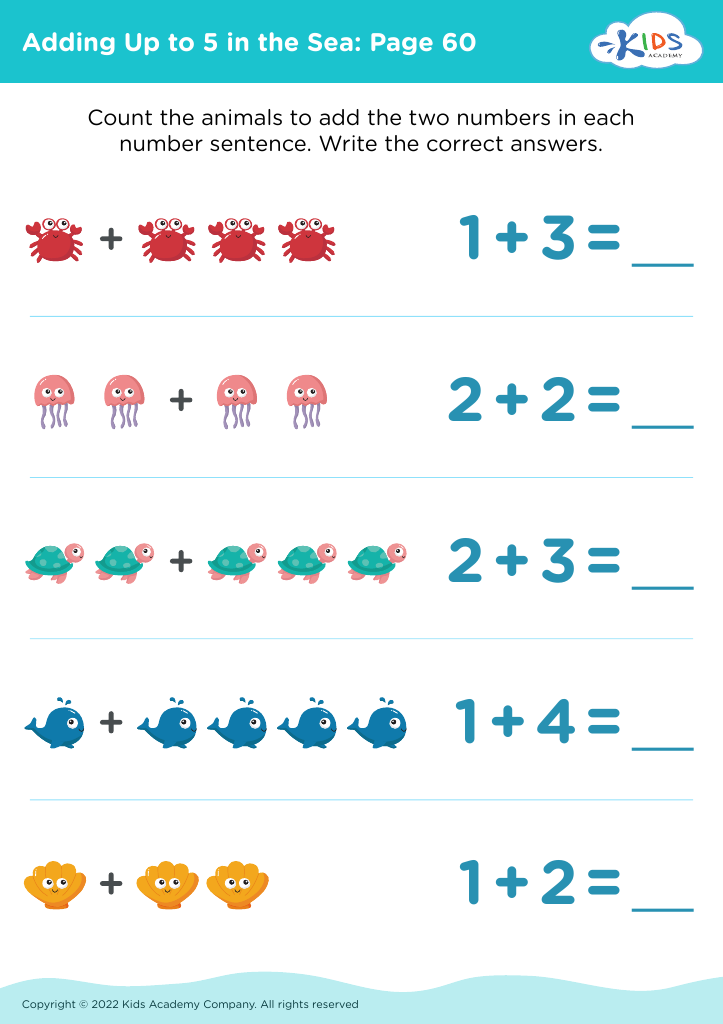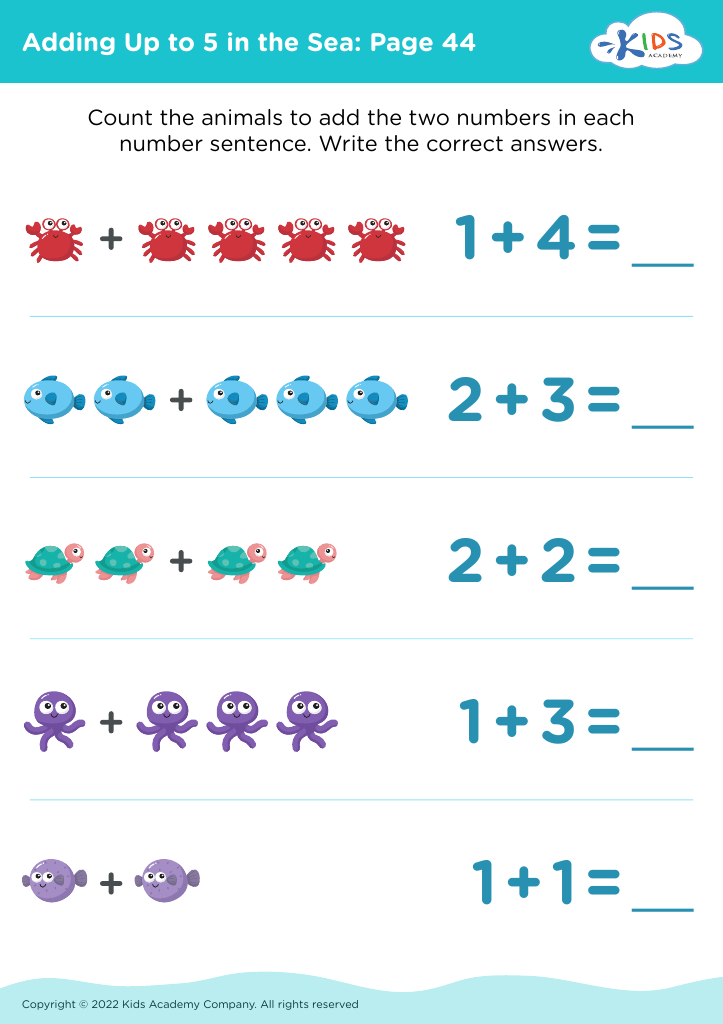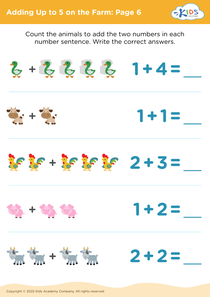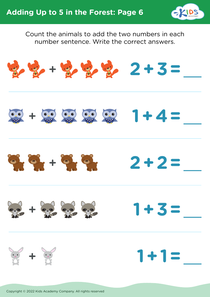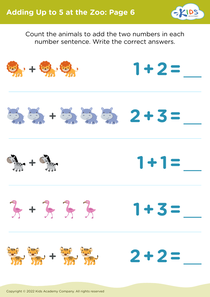Cognitive Development Adding in the Sea Worksheets for Ages 4-5 - Page 2
28 filtered results
-
From - To
Cognitive development is a vital aspect of early childhood education, especially for children ages 4-5, as it lays the foundation for lifelong learning and intellectual growth. During this stage, children's brains experience rapid development, enhancing their capacity to think critically, solve problems, and understand complex concepts. Parents and teachers should prioritize cognitive development because it influences a child’s ability to engage with the world meaningfully.
Engaging in stimulating activities, such as storytelling, problem-solving games, and interactive play, can enhance children’s cognitive skills. These activities not only promote language and communication skills but also foster creativity and curiosity. Moreover, nurturing cognitive development positively impacts social skills, as children learn to cooperate and communicate with their peers.
Additionally, supporting cognitive growth helps address individual learning needs, allowing for early identification of challenges that may require intervention. By focusing on cognitive development in early education, parents and teachers can set the stage for academic success, boost self-esteem, and inspire a genuine love for learning. Investing in this critical area ensures that children are better prepared for future educational experiences, equipping them with essential skills to navigate academic and social landscapes effectively.
